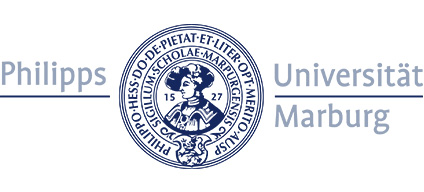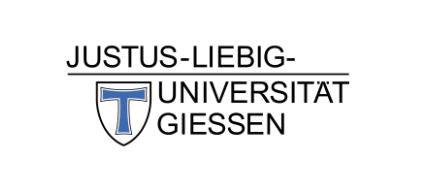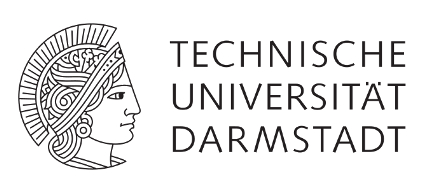Main Content
Transfer concept of the CMBB
The "Center for Mind, Brain and Behaviour" (CMBB) is an inter-university scientific facility of the Philipps-Universität Marburg (UMR) and the Justus Liebig University Giessen (JLU) at the Research Campus of Central Hessen (RCCH). At the CMBB, scientists from various disciplines - in particular biology, computer science, medicine, neuroscience, pharmacy, physics and psychology - from both universities work together in an interdisciplinary way.
Definition
The CMBB understands transfer as the bilateral exchange of knowledge between the academic and non-academic world, in particular with regard to three fields of action. Firstly, the transfer of scientific findings from basic research into applications (e.g. in the medical, medical-technical, pharmaceutical, psychotherapeutic or industrial fields) (apply). Secondly, advising actors from politics, society, associations and industry to enable them to understand and apply scientific knowledge and its prerequisites and limits (advise). And thirdly, to actively promote and shape the exchange between science and the general public (communicate).
One of the central tasks of the CMBB is to support all translational approaches and processes that serve these three fields of action. In this context, the exchange in the three fields of action is explicitly understood as a bilateral process with a view to long-term partnerships with actors from the target groups in the non-academic world. In particular, these processes are to be anchored in teaching and scientific training in order to promote the dialogue between science and society in the long term. In this understanding, transfer is the prerequisite for the transfer of the scientific findings of the scientists organised in the CMBB to the solution of social challenges and to economic innovations.
The aim of this transfer concept is to analyse the initial situation, to define short-, medium- and long-term transfer goals and to propose ways to achieve these goals. These objectives, as well as the measures to achieve them, require continuous annual review by the Board of Directors and its supervisory bodies, and regular adjustment as a result.
Background
Research and application
Applications for third-party funding to the BMBF and the EU require that the transfer of research results into applications to be addressed or even that specific transfer measures to be described. Meanwhile, research proposals to the German Research Foundation (DFG) must also explicitly mention possible later applications that may result from basic research. Therefore, in the medium term, all researchers will have to deal with aspects of transfer.
At the same time, not all members already have concrete ideas about the application areas in which their research could have an impact, or have contacts with appropriate transfer partners (e.g. companies from the health sector or industry). In addition, it is time-consuming to gain an overview of companies that are interested in science and active in research, and establishing initial contact is often a hurdle that delays or even stops further activities. On the other hand, some of the scientists involved in the CMBB already have contacts to regional and national companies, e.g. in the fields of measurement technology or pharmaceuticals (e.g. Thomas Recording Giessen, Avisoft Bioacoustics e.K., Zeller, Schwabe), as well as experience in the successful translation of basic research into industrial and clinical applications.
Communicate and advise
Numerous CMBB working groups participate in a wide range of outreach activities, such as the UMR and JLU Children's Universities, Girls' and Boys' Days, or JLU's Street of Experiments, and regularly communicate their knowledge and research results in public lectures and in print and online media. For example, the CMBB Neurocolloquium is a university-wide event with about five lectures per semester by renowned national and international scientists, bringing the latest findings in neuroscience to the general public.
In addition, some of the CMBB's scientists are already successfully contributing to the transfer of knowledge by advising associations (e.g. the Alliance against Depression) or actors from society (e.g. the Marburg Citizens' Initiative for Social Psychiatry) and politics (e.g. state ministries). An important role is also played by communication and consultation as well as work in the various funding organisations, scientific societies and professional associations (e.g. German Research Foundation, German Society for Psychosomatic Medicine and Medical Psychotherapy, German Neuroscience Society, German Pharmaceutical Society, Pharmacists' and Doctors' Chambers) in which members of the CMBB are already active. The aim of the CMBB is to establish central qualifications in science communication at all career levels by offering appropriate courses.
Teaching and academic training
On average, about 10% of all doctoral graduates in Germany remain in academia in the long term. Although this proportion is higher in psychology, for example (around 30%), the majority of our graduates find employment outside academia in the future. At present, there is not enough targeted preparation for this step after graduation or doctorate. One of the reasons is that many supervisors have spent their entire careers at universities and research institutes and have little insight into possible fields of activity outside academia. Further action is needed to make it easier for highly qualified academics to continue their careers in business, as entrepreneurs or in public service. Highly qualified graduates are central to successful transfer. Those interested in setting up a business will receive tailored offers through the reliable structures of the three universities in Central Hessen (StartMiUp, etc.).
Goals
For a profitable exchange between science and industry (users) it is necessary to identify the needs of UMR and JLU on the one hand and the needs of companies on the other hand. At the same time, it must always be clear that universities and companies are on an equal footing and that the transfer creates added value for both sides. Added value for industry is stable access to the latest research methods and results, as well as greater visibility among potential applicants. Further added value can only be identified after initial discussions with industry representatives. The CMBB uses its contacts with industry to give its graduates an insight into various fields of activity outside academia.
In addition, the CMBB aims to promote and actively shape the exchange between science and other areas of society (communication and consulting). To this end, the CMBB organises, promotes and supports various activities each year.
Research and application
The CMBB gathered information on which scientists and working groups have already collaborated with industrial partners. The CMBB uses this information to identify lighthouse projects that exemplify the transfer that is already taking place, both internally and externally. In addition, scientists with transfer experience will be identified as permanent contacts for transfer. Furthermore, information about existing transfer offers and organisations (e.g. TransMIT, StartMiUp) at JLU, UMR or in the region should be provided on the CMBB homepage and through targeted events, and contact persons of these organisations should be named. In particular, the cooperation with the University of Applied Sciences in Giessen (THM) is to be expanded in the future in order to open up the existing networks and competences of the THM in the area of transfer to the members of the CMBB.
In addition, new focus projects are to be identified that contain particularly promising activities for the transfer of scientific findings into applications. The monitoring and evaluation of these focus projects should identify transfer opportunities and challenges, in particular for scientists from the research fields of the CMBB.
In addition, the CMBB should inquire whether and which industrial partners (or divisions) are being sought, e.g. for research proposals or other scientific projects. In the long term, a database should be created, accessible to all members of the CMBB, containing the contact details of relevant industrial partners - for this purpose, cooperation should also be established with the Chamber of Industry and Commerce and the transfer offices of the UMR, JLU and THM. Members who are interested in non-university cooperation should also provide information about their work and research priorities so that the CMBB can contact these colleagues in the event of enquiries from industry. As stated in the statutes, the CMBB should thus become a partner of industry.
Communication and advice
In addition to the Neurocolloquium, other formats (e.g. social media, Night of Neuroscience or Night of the Centres, lecture series, etc.) should be created through which CMBB scientists communicate with society. In addition, science communication should be an integral part of our training programme (Master, PhD). Postdocs and PIs should also have the opportunity to further their education in science communication. Furthermore, contributions of the CMBB to regular lecture events and training courses of scientific societies (e.g. Neuroscience Society, German Pharmaceutical Society) and professional associations (e.g. associations for pharmacists and medical doctors) can contribute to knowledge transfer and exchange.
Teaching and training
The CMBB aims to create opportunities for graduates (Master's, PhD) to make an informed search for non-academic career options. This will be done, for example, through "career path seminars" where alumni who are now working outside academia can share their experiences with young academics. In addition, forums for mutual exchange between industry and young) scientists will be created (e.g. fireside chats, Neuroscience Day, (job) fairs, cooperation with the MArburg University Research Academy MARA and JLU's internal training programmes).
Another medium- to long-term goal is to create a database of companies offering internships, external theses and even specific positions.


